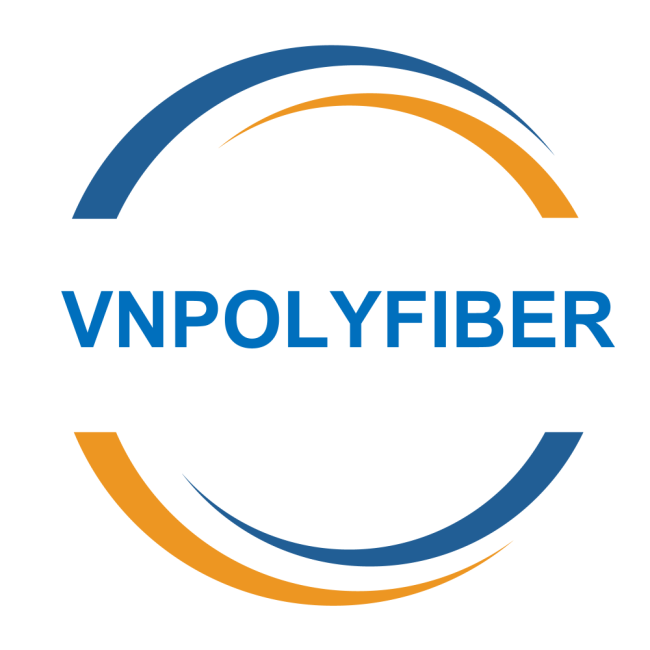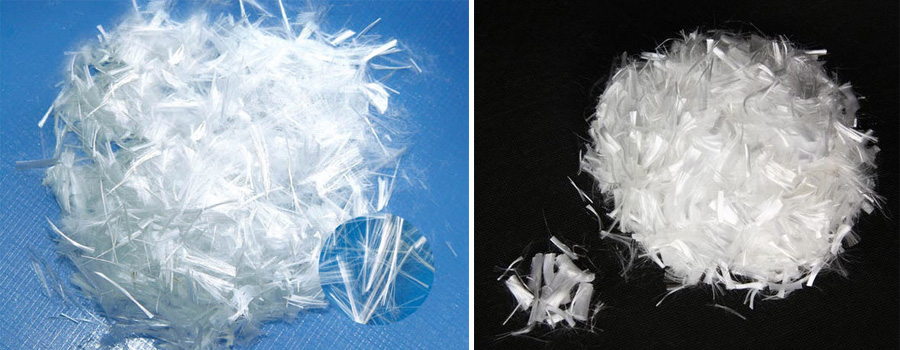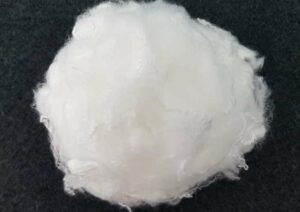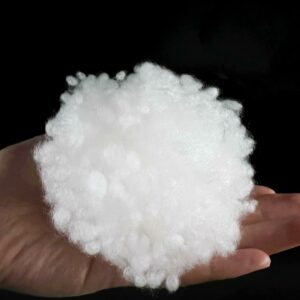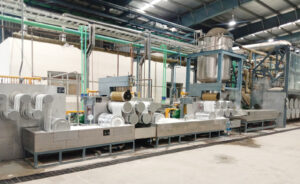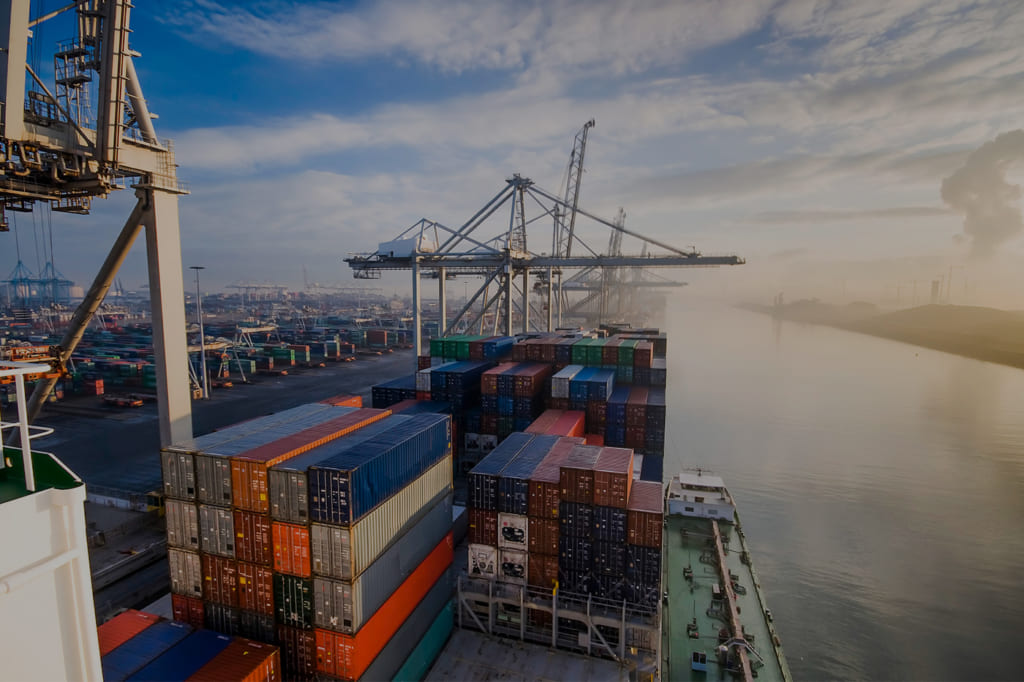Introduction to the use of ultra-short fiber
Ultra-short fibers are typically defined as short fibers with a length of less than 20mm. The specifications for these products necessitate a range of fiber forms and cut lengths. These products are primarily utilized for enhancing plastic materials in various applications such as hygiene products, non-woven products, papermaking, paint, and concrete. In the case of PET products, they are predominantly utilized for papermaking and reinforcing asphalt materials. Typically, these fibers have a single filament denier range of approximately 6 denier, with some as low as 0.5 denier.
The intended applications for ultra-short fibers are as follows:
– 3-6mm: Primarily used in papermaking, sanitary products, and medical products.
– 6-20mm: Commonly found in automotive parts (such as battery filter paper), filter materials, reinforcement of plastic materials (such as asphalt), non-woven products, etc.
The key characteristic of ultra-short fiber products is the uniformity and accuracy of the fiber’s cut length. Precision in cut length is crucial, as slight variations can lead to different product qualities. Alongside accuracy, dispersibility is also a critical factor for ultra-short fibers used in reinforcement materials, typically achieved through the addition of dispersants. Therefore, the cutting equipment and tension control system are vital components of the manufacturing process for ultra-short fibers. Additionally, packaging considerations should account for the need for effective sealing due to the fine nature of ultra-short fibers resembling dust. Addressing other technical challenges seamlessly is also imperative for the successful production of ultra-short fibers.
Application fields of polypropylene (PP) ultra-short fiber:
Engineering fiber:
Primarily utilized to enhance the impermeability and crack resistance of mortar and concrete, this type of ultra-short fiber is characterized by its small diameter, typically lacking crimp, and necessitating high dispersibility. Generally, specialized surface treatment technologies for fibers (such as the three-lobe type) are employed to enhance the physical bonding between the fiber and concrete. Presently, there are numerous domestic manufacturers of this ultra-short fiber, primarily due to its minimal requirements for cutting length precision and relatively modest equipment investment, resulting in varying product quality.
The general performance indicators of engineering fibers are as follows:
Density: 0.91
Length: 3mm, 6mm, 10mm, 12mm, 15mm, 20mm
Elastic modulus: >3500MPa
Tensile strength: >400MPa
Anti-acid and alkali: strong
Packing form: bagged
General dosage: average 0.9 kg/m3 concrete
Given that polypropylene fiber inherently exhibits non-water absorption, robust acid and alkali resistance, and an elastic modulus on par with concrete, its addition can significantly enhance the impermeability, abrasion resistance, crack resistance, impact resistance, and fatigue resistance of concrete. Widely adopted in developed nations overseas, this fiber can be applied in specialized construction projects like concrete pavements, bridge decks, airport pavements, rivers, dams, reservoirs, tunnels, and mine walls, effectively extending the lifespan of such structures.
Paper fiber:
Paper fiber is classified into dry papermaking and wet papermaking. Typically, polypropylene fiber is predominantly utilized in the realm of dry papermaking, specifically in the production of puffed soft paper. Puffed soft paper serves as a novel form of disposable sanitary material, capable of being manufactured into a high-density dust-free paper absorbent core material to cater to the specialized requirements for enhanced absorption capacity and liquid retention. Additionally, it can be transformed into a low-density absorbent core material suitable for medical applications. The polypropylene fiber employed in dry papermaking embodies a sheath-core composite structure, featuring a surface layer composed of low melting point material and a core layer comprising PP or alternative materials. During dry papermaking, a specific temperature is leveraged to melt the low-melting surface layer, facilitating uniform bonding with wood pulp fibers and other moisture-absorbing substances to generate a foundational material. The ultra-short fiber displays a two-component configuration, characterized by minimal or absent crimping and demanding high antistatic and dispersibility properties.
This particular product finds primary utility in a spectrum of applications encompassing disposable medical devices (e.g., mattresses, surgical gowns, dressings), sanitary napkins, underpads, cosmetic paper, high-end household essentials, and the like. According to international reports, the consumption of expanded soft paper in the United States alone nears 1 million tons annually, with a consistent uptrend.
With regard to wet papermaking, polypropylene ultra-short fibers are principally blended with other fibers to produce paper endowed with requisite wet strength qualities, notably in the fabrication of filter paper and tea bag paper.
Non-woven fabric fiber:
In the past, the majority of fibers utilized in the production of non-woven fabrics were traditional fiber products. However, due to the specific requirements of automotive interior decorations, there is now a demand for ultra-short fibers with lengths of less than 20mm. Ultra-short fibers are characterized by their low strength, high elongation, and lengths typically ranging from 6mm to 20mm, with minimal or no crimp. These fibers are primarily utilized in automotive interior materials, as well as in the manufacturing of other substrates such as furniture decorations. Currently, a combination of ultra-short fibers, such as polyester, viscose, or polyamide/wood pulp, are being used in industrial wipes like floor cloths and automotive polishing cloths to enhance their durability.
Application fields of polyester (PET) ultra-short fibers:
Paper fiber:
Polyester ultra-short fibers are predominantly employed in the wet papermaking industry. These particular fibers exhibit excellent antistatic properties, dispersibility, hydrophilicity, high strength, toughness, low heat shrinkage, and typically do not curl, with lengths ranging from 3mm to 12mm. Utilizing polyester ultra-short fibers along with plant fibers in the papermaking process enhances the strength and overall performance of the paper, thus expanding its range of applications. These fibers can be used to produce recycled paper, filter paper, anti-counterfeiting tickets, and other specialized papers.
Engineering fiber:
Due to its higher melting point, polyester ultra-short fiber is mainly used for crack resistance and reinforcement of high-grade highway asphalt. The general performance indicators are as follows:
Length: 4mm-20mm
Specific gravity: 1.36/g.cm-3
Melting point: >250 degrees
Breaking strength: >700MPa
Elongation at break: 18-35%
Curl degree: none
By incorporating polyester ultra-short fibers, the asphalt pavement can experience significant improvements in thermal stability, hydrophobicity, and fatigue resistance. These enhancements lead to a prolonged service life of expressways and a reduction in maintenance expenses.
Other industrial uses:
Additionally, polyester ultra-short fibers have various industrial applications. They can be utilized in the production of industrial battery plates and separators, as well as paint fillers for marine vessels. Moreover, these fibers can serve as building reinforcement materials by replacing asbestos, and can also be used for flocking purposes.
